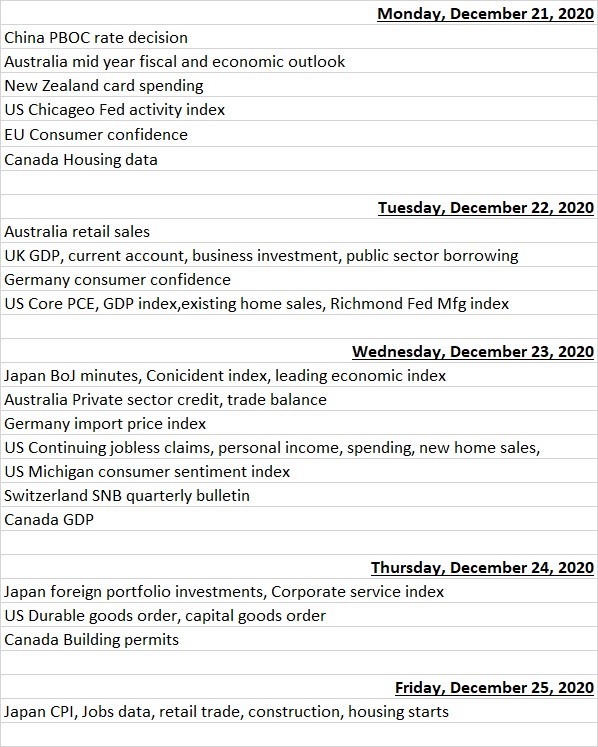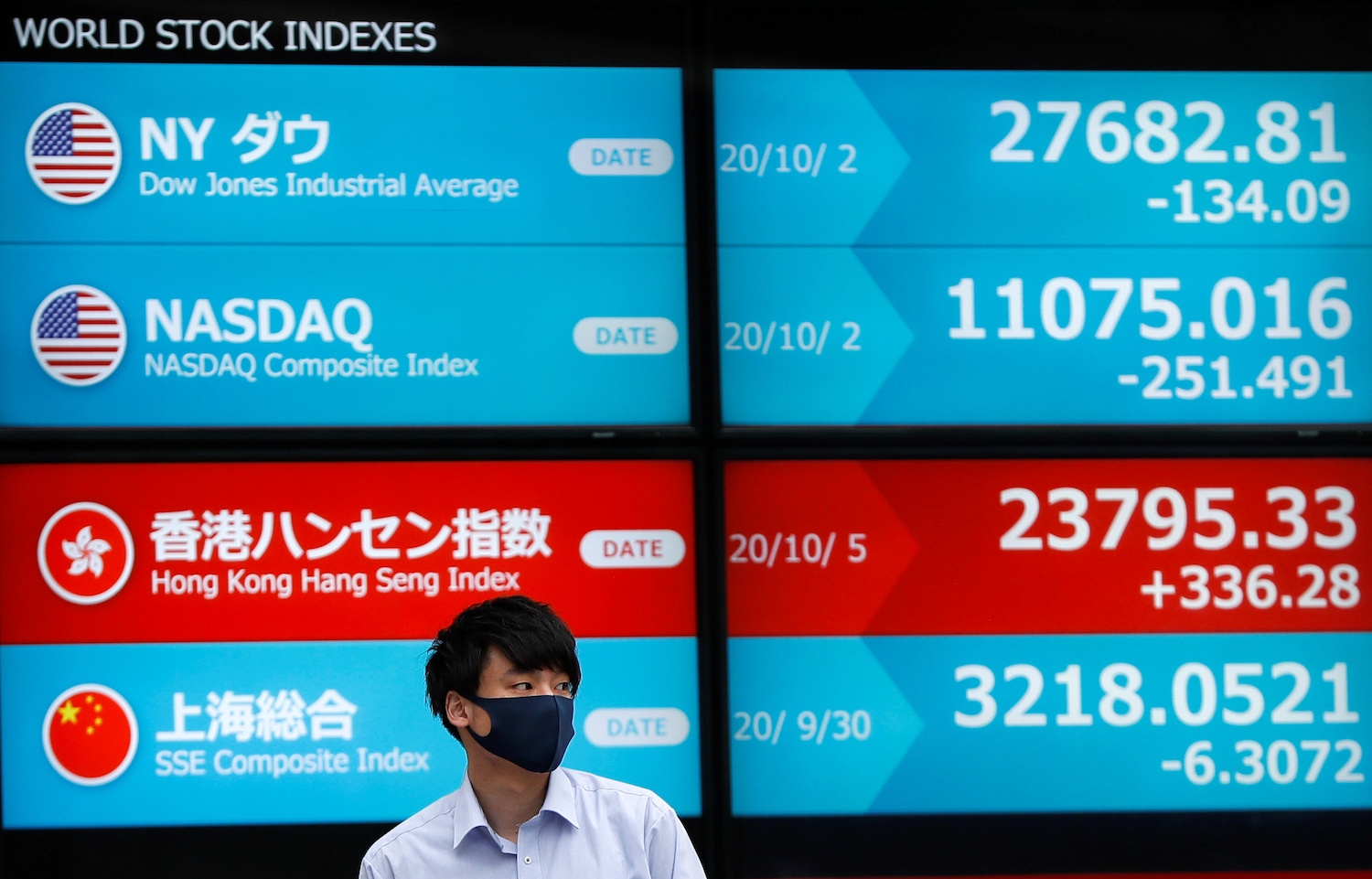Financial markets will enter the holiday-truncated week with cautious optimism as the US congress agreed on a $900 billion coronavirus aid bill with the US Federal Reserve Vice-Chairman Richard Clarida expressing an upbeat economic assessment with “very, very positive news on multiple vaccines”.
The US Federal Reserve’s approval for the resumption of bank share buybacks gave US banking stocks a late surge on Wall Street on Friday and Moderna Inc’s Covid-19 vaccine became the second vaccine to be cleared by US regulators, boosting confidence in the world’s largest economy.
Read more: RBI invites fintechs to test cross-border payment apps
But still, tensions between the two largest world economies will cap gains after the US State Department added more than 60 Chinese companies to its Entity List, a designation which limits companies’ ability to acquire certain US technology by requiring US exporters to apply for a licence to sell to the company.
Besides China’s top chipmaker SMIC, the list includes China Shipbuilding, China Communications Construction Company and several other listed companies.
Those tensions with China gathered momentum over the weekend as Beijing announced its own restrictions on foreign investments while insisting these are on the grounds of national security rather than protectionism.
On Saturday, China’s National Development and Reform Commission (NDRC) published rules for reviewing foreign investment. It covers foreign investments in military sectors and the acquisition of controlling stakes in such sectors as energy, natural resources, agriculture, internet technology and financial services.
PANDEMIC SUPPORT
In a data-light week, central bank meetings in China, Japan, Taiwan, Indonesia and the Philippines are all expected to leave rates unchanged. The People’s Bank of China policy rate meeting will be in focus as investors gauge when some of the emergency pandemic support will be unwound.
“Although the Caixin PMI surveys indicated the strongest rates of economic growth and job creation seen for over a decade in November, policymakers are juggling these encouraging signs against concerns over a strengthening yuan, deflation and credit risks following significant recent defaults in China’s USD 4 trillion domestic corporate bond market,” said Chris Williamson, Chief Business Economist, IHS Markit.
PBOC’s last move was a 20 basis point rate cut to 2.95% in April this year.
FUND FLOW
Investor enthusiasm for risk assets remained unabated as the year end looms with global equity funds setting a new inflow record and emerging markets seeing strong demand but Europe continues to see outflows on account of the euro strength, no-deal Brexit fears and new restrictions to curb the spike in infections.
EPFR data for the week to December 16 showed Global Equity Funds set a new inflow record, their second in less than a month, Emerging Markets Equity Funds pulling in over $2 billion for the sixth straight week and EM Bond Funds attracting new money for the 11th week in a row.
Emerging markets debt remains in demand with that asset group having seen inflows for 22 of the past 23 weeks. But there seemed to be a loss of momentum with the latest flow data showing flows to Local Currency and China Bond Funds, showing a considerable loss of momentum with China Bond Funds recording their smallest inflow since the first week of October.
REFLATION THEME
Reflation is expected to remain the theme for developed markets amid hopes for another US stimulus package early in the New Year. Over $25 billion flowed into US Equity Funds and Global Equity Funds, the largest of the diversified DM Equity Fund groups, registered the second inflow record in the past month.
“While shunning Europe, investors added significant sums to fund groups dedicated to themes with momentum: diversified exposure to post-vaccine reflation of the global economy, social and environmental justice, emerging markets and hedging against anticipated inflation,” said Cameron Brandt, Director, Research.
In another noteworthy theme, flows indicated investors continue to favour funds managed for growth which have outgained – in flow terms – their value counterparts 17 of the past 19 weeks.
Solid flows into China Equity Funds and Vietnam Equity Funds, which recorded their biggest in-flow in over two and a half years, were also noteworthy.
“The Vietnamese economy has so far escaped the pandemic’s second wave and is on track to record full-year growth of around 2%, helped by a pick-up in exports to US customers looking for alternatives to Chinese suppliers,” said Brandt.
Economic data calendar

Last week’s rating changes

























